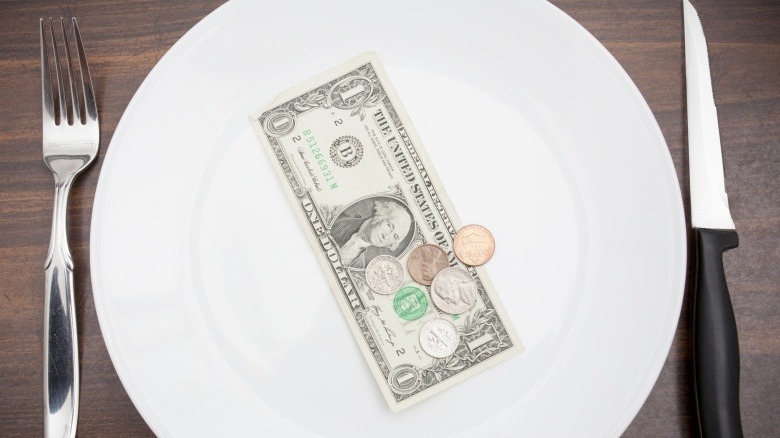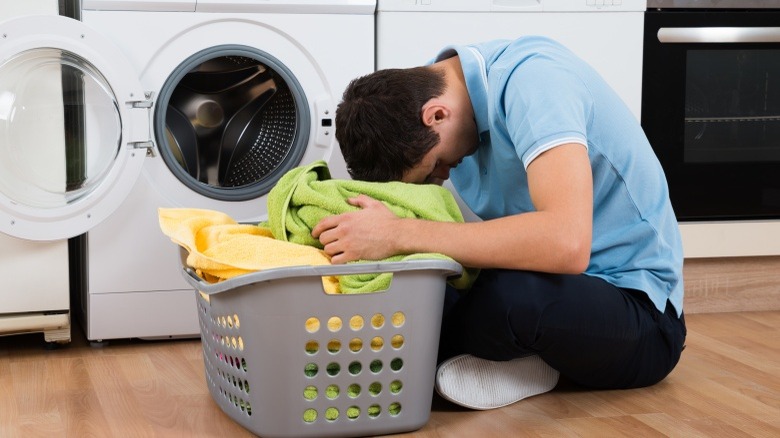Dealing With Income Inequality In Your Relationship
Income inequality in a relationship (if you make more than your partner or vice versa) can be a tough issue to tackle. Not surprising, since finances and relationships are like oil and water — they don't mix easily. Not only that, but we all have misunderstandings about money and how to manage it. When one partner makes more than the other, it can put a strain on your relationship. But it doesn't have to be that way. With open, honest discussion and careful planning, you can avoid the pitfalls that a wage gap can cause. Here are a few common problems you may encounter along the way and some ideas on how to tackle them.
Making spending decisions
Too frequently, money translates to power, even in our personal relationships. That means that income inequality in your relationship also means power inequality. Who makes the decisions on how your household money is spent? If the higher earner is the only one making major spending decisions, that needs to be addressed.
If you're planning an upcoming vacation with your partner and you disagree on the destination, you may be tempted to let your higher-earning partner "win," since they are the one paying for most of the vacation. Instead, you should be approaching these sort of decisions as a team. Discuss the pros and cons of a financial decision together, and if you can't fully agree on one option, then work to find a third alternative that you compromise on. You may want to go to Hawaii, and he may want to go to Tahoe. Instead, perhaps you can agree to take a cruise that you'll both enjoy.
"My money" vs. "our money"
Income inequality within a relationship can also make it hard to decide what is household income and what's your own personal income to do as you like with. Deborah Price, author of The Heart of Money, explains this dilemma: "One of the most common issues I see is that the person who earns less views the breadwinner's income as 'our money,' but considers their own salary 'their money.' If left unmanaged, this attitude can start to fracture the relationship."
Set up a joint account, and then each of you should have a personal account. You could fund the joint account proportionately — if one partner earns 2/3 of the total household income, they contribute 2/3 of their take-home pay to the joint account, while the other partner contributes 1/3 of their take-home pay. Whatever is left over for each partner gets deposited in the personal accounts. Alternatively, you can use an "allowance" system — all take-home pay gets deposited into the joint account, then each partner withdraws a fixed amount each month into their personal account to use as they wish.
Once money is in a personal account, don't question or criticize your partner on how they choose to spend it — unless they are doing something clearly reckless or dangerous. Conversely, if a partner spends all the money in their personal account, they should not be able to dip into the joint account for a personal purchase, unless you both agree to it.
The burden of being a breadwinner
If you're the primary breadwinner within a household with a large income disparity between partners, you may feel burdened and overwhelmed by the responsibility of keeping everything in the black. This burden can cause serious resentment and animosity and make you feel trapped. For example, you may be stuck in a job you hate, but you can't quit because the money you make is essential to keeping your household afloat.
Sit down with your partner and discuss the situation. Your partner may be able to help lessen your emotional burden by stepping up to assist with other duties like paying the bills or taking care of more things around the house. Also, never feel like you are stuck in a job you despise. While it may require some major sacrifices on both sides, you and your partner should be able to adjust the household budget so that you don't feel like you're constantly holding on by your fingernails.
Who takes care of the house
Just because an income inequality exists in your relationship and your partner earns less than you doesn't mean they should be doing all the work around the house to "make up" for it. Take a proportionate approach that is fair to everyone — which may not be 50/50.
Make a list of weekly household duties and how much time they take. If you spend 40 hours working each week and they spend 20 hours, then they should be doing approximately twice as much housework as you do. Divide up the duties as close to this ratio as possible, and take into consideration your partner's likes and dislikes. If they hate doing dishes, you could volunteer to take that one as part of your list. In return, maybe your partner will volunteer to take a task you can't stand, like folding the laundry.
Forgetting to save
Determining how much you should put into savings when there is income inequality in your relationship can be particularly stressful, but it's worth the conversation. A majority of Americans wouldn't be able to come up with $1,000 in an emergency. If that's the case for your household, your first priority should be to fix that lack of savings.
The amount of financial stress in your relationship will go way down if you can both breathe comfortably knowing that you can handle an emergency if it happens. Add a joint savings account, and each of you should commit to deposit a certain percentage of your paychecks until your goal amount is reached. Once you have attained that amount, don't touch it, especially for pointless things! That fund should only be used when it's absolutely needed, like for a trip to the hospital, a broken-down car, or an unexpected lay-off.
If you do have to dip into it for an emergency, your first priority once the crisis has passed should be to replenish the fund again for the next time you need it.
Denying your needs and wants
If you're the lower earner in a relationship with an income gap, you may be tempted to avoid making personal purchases for the "good" of the household as a whole, or because you don't feel you have the "right" to spend the money. Conversely, a breadwinner may make the same decision to deny themselves, especially if their income pays for the majority of the bills. If you're denying your wants — like a spa visit, a night out, or a new set of golf clubs — that's problematic. If you're denying your needs — like food, clothing, or medical/dental care — that's dangerous.
Use our advice about keeping both personal and joint accounts, and don't be afraid to spend the money in your personal account on the stuff you need or want. Sometimes the unexpected happens, and your partner should understand that. If an important personal expense comes up that you can't cover on your own, like an unexpected root canal, talk to your partner instead of going without. They'd probably much rather you use some money from the joint account to go to the dentist than let you walk around suffering in silence.






